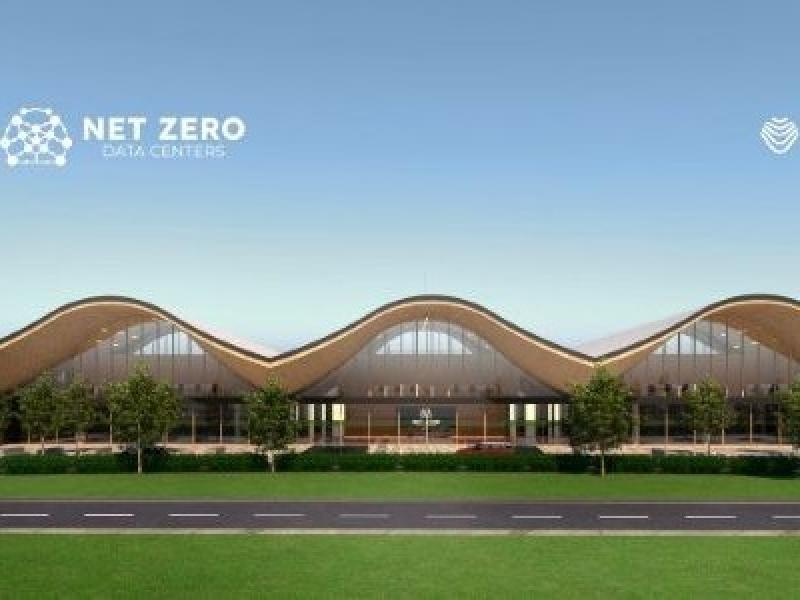
As Alberta aspires to become a magnet for data centre developments, Calgary-based Net Zero Now Ltd. is looking to power those facilities through a 320-acre, 400-megawatt (MW) energy campus using a mix of renewables and natural gas.
A project developer founded in 2023 as a wave of data centre announcements swept the world, the goal with Net Zero Now’s facility is to supply a constant flow of electricity to Alberta’s grid, or to co-located data centres.
“The vision there is a 24/7 electricity supply that’s trying to provide the lowest-cost electricity to either the electricity grid and/or the on-site energy consumer,” Scott Martin, co-founder and head of energy at the company, said in an interview with Sustainable Biz Canada.
Energy-hungry data centres, facing increasing demand because of artificial intelligence (AI) services and internet use, are a cornerstone of the Alberta’s government plan to attract $100 billion in AI infrastructure over the next five years. In a media release, Net Zero Now says the facilities’ operators are applying for 16,229 MW of load capacity.
A rise in data centre demand has been identified as an increasing source of climate pollution. An analysis by Morgan Stanley suggests the industry could emit approximately 2.5 billion tonnes of carbon dioxide-equivalent through 2030 — about 40 per cent of the annual greenhouse gas emissions of the U.S.
Gas, renewables, batteries to power campus
Martin has a background in the electricity and renewable energy sectors; he worked for Canadian Solar and later founded Guelph, Ont.-headquartered consultancy Zenith Power.
Fellow co-founder Logan Downing, Net Zero Now’s head of carbon strategy, was employed by Suncor and Husky Energy as an energy consultant before moving into the carbon markets industry.
Through their company’s energy campus, data centre operators would be able to contract for power with Net Zero Now via Alberta’s grid or a co-located energy campus.
A combination of co-located or off-site wind and solar, on-site batteries and natural gas generation will be used to power the campus, with renewables used “where possible” to augment the fossil fuel, Martin explained.
As electricity reliability is crucial to data centres, natural gas and energy storage will be used to keep the power flowing when the sun doesn’t shine and the wind doesn’t blow.
If renewable energy is not feasible either financially or technically, Net Zero Now plans to use emissions offsets from other power generators or projects in Alberta, including virtual power purchase agreements.
Additionally, the company expects to employ “net-zero building techniques” to reduce the embodied and operational carbon from the buildings at the campus. Those include advanced insulation systems, sustainable materials and energy-efficient construction practices.
As a developer, Net Zero Now will not be the long-term owner and operator of the energy campus. Once the early development work is complete, Martin said the company will prepare the campus for well-capitalized independent power producers or long-term data centre operators to take over.
'Tremendous opportunity in Alberta'
Martin acknowledged the conundrum of using natural gas for a project touted as low-carbon. But he argues natural gas is the lowest-emissions option available for reliable on-site electricity, and Net Zero Now will aim to draw upon renewable energy as much as possible.
Compared to coal and oil, natural gas does produce fewer emissions. However, research has suggested when methane leaks from natural gas production are accounted for, there may be no difference in pollution.
A precise breakdown of the energy mix is in development, Martin said. He declined to disclose the planned location, nor any timeline for developing the project. He did say it will be strategically located close to the electricity grid and other critical infrastructure.
Billions of dollars will be needed to fund the energy campus, Martin said. To date, Net Zero Now has raised some private capital and is continuing those efforts.
A major milestone that was recently surpassed was finishing the environmental studies for the campus. The company’s next steps are to design the facility, go through the Alberta Utilities Commission for approval, finalize the engineering and then start construction.
Looking ahead, Martin said Net Zero Now is already discussing development of a second energy campus.
“We see the tremendous opportunity in Alberta and some other sites that we’ve identified, that haven’t been secured.”










